Indigenous

As a poet, I used to compartmentalize my poetry. Christian poetry, poetry of the body, and Spanglish poetry all had their unique boxes until I came across the term theopoetics in academic scholarship. We all know how language and scholarship work. While white men are busy naming theopoetics to utilize in scholarship, women, women of color, black women, and indigenous peoples have been theopoeticizing since before Sor Juana Inés de la Cruz to the time of Macuilxochitzin.
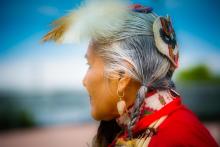
Alaska has a “linguistic emergency,” according to the Alaskan Gov. Bill Walker. A report warned earlier this year that all of the state’s 20 Native American languages might cease to exist by the end of this century, if the state did not act. American policies, particularly in the six decades between the 1870s and 1930s, suppressed Native American languages and culture. It was only after years of activism by indigenous leaders that the Native American Languages Act was passed in 1990, which allowed for the preservation and protection of indigenous languages. Nonetheless, many Native American languages have been on the verge of extinction for the past many years.

As a mixed race person, who inhabits both whiteness and nativeness, both Christianity and other forms of spiritual identity, I am often in a state of questioning, on the margins wondering if I am really supposed to be in the church, or if I am truly allowed in with the history I carry with me.
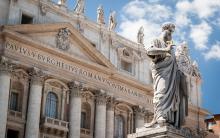
After Native American delegates met with Pope Francis and other Vatican representatives requesting an end to the Doctrine of Discovery, the Vatican said that it would consider rescinding the 500-year-old Catholic policy, reports APTN.
The Doctrine of Discovery is the name for a body of Catholic law that granted land rights to whichever European Christian nation settled territory in the New World. It considered as terra nullius (“nobody’s land”) any territory occupied by “heathens, pagans, and infidels” — in other words, the original inhabitants of the Americas.

After over one hundred years of being known as “Mount McKinley,” North America’s tallest mountain will henceforth be officially recognized as “Denali.” President Obama announced the change on Aug. 30 in anticipation of his trip to Alaska, on which he will call for aggressive action against climate change.
Alaskan Native tribes have long objected to the cultural imperialism embedded in the name “Mount McKinley,” which commemorates a man who never even stepped foot in Alaska.
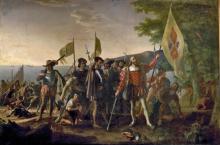
POPE FRANCIS arrives in the U.S. this September to great acclaim. The popular pontiff will speak truth to power in Congress and at the United Nations and preach the necessity of stewarding creation, promoting an economy for life, and defending human dignity.
He also will canonize Junípero Serra, the Spanish Franciscan missionary who founded the first nine of 21 Spanish missions in California in the 18th century—many say on the backs of Indigenous people. While some call Serra a “shepherd and protector,” others argue he symbolizes the colonial conquest of North America through genocide.
Serra was a human being—sometimes noble, sometimes not. However, his conquest operated under a body of Christian law and policy called the Doctrine of Discovery, a series of papal documents (“bulls”) that granted legal right of ownership to whichever European Christian nation arrived first in the new territory. Since 1823 it has also been enshrined in U.S. law. As recently as 2005, Supreme Court Justice Ruth Bader Ginsburg cited it as the basis for denying a land claim by the Oneida people, one of the five founding nations of the Iroquois Confederacy.
The Doctrine of Discovery is based on a principle of Roman law called terra nullius (“nobody’s land”) and grew out of the church’s conviction that “discovered” lands were devoid of human beings if the original people who lived there (defined as “heathens, pagans, and infidels”) were not ruled by a Christian ruler. “The Doctrine mandated Christian European countries to attack, enslave, and kill the Indigenous Peoples they encountered and to acquire all of their assets,” wrote the World Council of Churches in a 2012 statement.
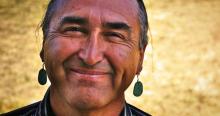
AT THE WORLD Christian Gathering of Indigenous People in 1996, our North American Native delegation was unable to find any “Christian” Native powwow music that we could use to dance to as part of our entrance into the auditorium. This was important at the time, as we didn’t feel the liberty to use “non-Christian” powwow music for a distinctly Christian event. A contemporary Christian song by a Caucasian worship leader using some Native words and a good beat was selected.
Except in a handful of cases (believers among the Kiowa, Seminole, Comanche, Dakota, Creek, and Crow tribes, to name some)—and those always in a local tribal context—Native believers were not allowed or encouraged to write new praise or worship music in their own languages utilizing their own tribal instruments, style, and arrangements.

FOR GENERATIONS, Native North Americans and other Indigenous peoples have lived the false belief that a fulfilled relationship with their Creator through Jesus required rejecting their own culture and adopting another, European in origin. In consequence, conventional approaches to mission with Indigenous peoples in North America and around the world have produced relatively dismal outcomes.
The result has subjected Indigenous people to deep-rooted self-doubt at best, self-hatred at worst.
One of the more egregious examples of the “conventional” approach in Canada involved the church-run residential schools. Indigenous children were taken from their families, prevented from speaking their native languages, and subjected to various other forms of abuse.
Isabelle Knockwood, a survivor of church-run residential schools, observed, “I thought about how many of my former schoolmates, like Leona, Hilda, and Maimie, had died premature deaths. I wondered how many were still alive and how they were doing, how well they were coping, and if they were still carrying the burden of the past on their shoulders like I was.”
Given the countless mission efforts over the past four centuries (which in practice were targeted not so much to spiritual transformation as to social and cultural annihilation), we might conclude that Indigenous people must possess a unique spiritual intransigence to the gospel.
Carol Roth offers support, resources, and ministry to Native Mennonites and their conferences.
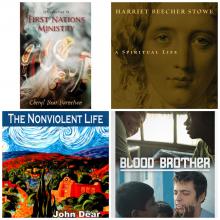
Faith and Reform
Writer and social reform Harriet Beecher Stowe’s controversial 1852 novel Uncle Tom’s Cabin brought many people to the anti-slavery movement. In Harriet Beecher Stowe: A Spiritual Life, biographer Nancy Koester illuminates the shifting role and expression of faith in Stowe’s personal and public life and work. Wm. B. Eerdmans
Falling into Love
A few years ago a young man named Rocky Braat left Pittsburgh to wander India; he’s ended up working for years in an orphanage for HIV-positive children there. His friend, filmmaker Steve Hoover, went to explore why. The result is a Sundance-award-winning documentary, Blood Brother. www.bloodbrotherfilm.com
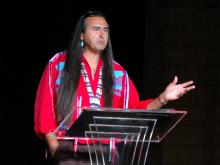
ALL EYES WERE fixed on Richard Twiss, the Lakota/Sioux co-founder and president of Wiconi International, who stood center stage at the 2011 Christian Community Development Association conference.
Twiss pulled no punches as he told the truth about the church's role in colonization: The global genocide of indigenous peoples and the eradication of indigenous cultures by requiring people to cut their hair, leave their families, forsake their languages, and forswear their drums. Coaxed to convert or be damned, indigenous people exchanged their own culture for guitars and mission schools in order to be "Christian."
On Feb. 9, 2013, Richard Twiss passed to the other side of life. For many he was a key voice for indigenous people finding a way to reclaim their culture while keeping hold of Christ. While Twiss was a primary voice of the movement, he was also a member of a larger circle of indigenous leaders, each of whom has played his or her part to establish and spread the good news of cultural reconciliation after "500 years of bad haircuts," as Twiss liked to put it.
Twiss had enormous impact on the indigenous "contextual ministry" movement. "Contextualization means to present the good news of the shalom kingdom of Jesus Christ in a way that people can understand and relate to in their own cultural context," explained Randy Woodley (Keetoowah Cherokee), distinguished associate professor of faith and culture at George Fox Evangelical Seminary.

I grew up in the Canadian north of Watson Lake, Yukon. My elementary years were spent in a public school with children of the Kaska nation. As I became an adult I was pretty proud of my exposure to and knowledge of indigenous people. But it took a return to Canada after a seven-year sojourn away to make me realize that I knew very little. I did not like the discomfort I had as I walked the city centre streets in Winnipeg, Manitoba, home of the largest urban indigenous population in Canada.
It was then I decided I had to learn. Over the last two years I have pushed myself to read and sit and listen.
Forests throughout North America would not be the same today without the trailblazing work of a small Mohawk Catholic community in Quebec.

It's a clear sign something's wrong when talks on "free trade" turn an island paradise into an armed camp.
Hawaii is on lockdown this week while the U.S. tries to hammer out a regional trade agreement that's being called "NAFTA for the Pacific." While some mean this as a compliment, Hawaii's faith and labor leaders are lifting their voices against an agreement they believe will put profits for banks and corporations above workers' rights, indigenous culture, and local communities. Those leaders are drawing on the Pacific region's indigenous "Coconut Theology" to provide an alternative vision of the common good.
"Coconut Theology came out of our contextual understanding of the Gospel in the Pacific," said Rev. Piula Alailima, pastor of Wesley Methodist Church in Honolulu and a core leader in the community organizing group Faith Action for Community Equity (FACE). "When we break the body of the coconut and partake of the juice, it's a symbol of the body and blood of Christ, of sacrifice, of community and the common good."
More than 140 prominent Protestant leaders from 12 Latin American countries have signed an "open letter to the Christian churches of the United States," asking American Christians to stand with "the most vulnerable members of US society" who would be affected by proposed budget cuts to the social safety net.
Citing the Circle of Protection as a positive Christian witness, the signers also expressed their dismay. "We view with deep concern recent decisions in the United States that will add to the suffering of the most vulnerable members of US society," the letter read. It was signed by a broad array of Latin American religious communities, including leaders of the Latin American Council of Churches, the United Bible Society of Latin America, evangelical councils and alliances in Peru, Ecuador, Honduras, Argentina, Brazil, Bolivia, and Uruguay, the Fellowship of Evangelical Churches (CONELA), the Association of Reformed and Presbyterian Churches of Latin America (AIPRAL), Micah Network, Indigenous Association of Peruvian Amazonia, and the Latin American Biblical University in Costa Rica.
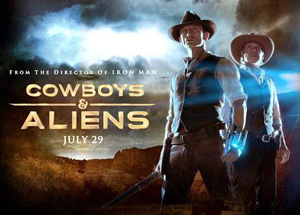 Americans have a hard time knowing how to respond to the sins of our colonial past. Except for a few extremists, most people know on a gut level that the extermination of the Native Americans was a bad thing. Not that most would ever verbalize it, or offer reparations, or ask for forgiveness, or admit to current neocolonial actions, or give up stereotyped assumptions -- they just know it was wrong and don't know how to respond. The Western American way doesn't allow the past to be mourned or apologies to be made. Instead we make alien invasion movies.
Americans have a hard time knowing how to respond to the sins of our colonial past. Except for a few extremists, most people know on a gut level that the extermination of the Native Americans was a bad thing. Not that most would ever verbalize it, or offer reparations, or ask for forgiveness, or admit to current neocolonial actions, or give up stereotyped assumptions -- they just know it was wrong and don't know how to respond. The Western American way doesn't allow the past to be mourned or apologies to be made. Instead we make alien invasion movies.
Don't get me wrong -- I love sitting behind my computer here at Sojourners, or proofreading a stack of magazine-pages-to-be, fresh from Art Director Ed Spivey's printer. But sometimes there's no substitute for being on the scene, live and in person.
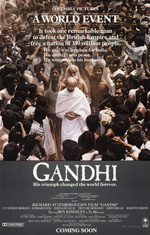 Ah the joy of watching movies in the summer! Of course, there are a number of summer blockbusters coming out that will woo crowds to the theaters, but with the sky-high prices of theater tickets these days, nobody will fault you for wanting to stay home and kick back with a rental. If you're looking for a film that will entertain and inspire you, consider adding some of these excellent films about social change to your online queue. If you have any other films to add to this list, please contribute your favorites in the comments section below. (To read more of my film reviews, check out my monthly column in Sojourners magazine.)
Ah the joy of watching movies in the summer! Of course, there are a number of summer blockbusters coming out that will woo crowds to the theaters, but with the sky-high prices of theater tickets these days, nobody will fault you for wanting to stay home and kick back with a rental. If you're looking for a film that will entertain and inspire you, consider adding some of these excellent films about social change to your online queue. If you have any other films to add to this list, please contribute your favorites in the comments section below. (To read more of my film reviews, check out my monthly column in Sojourners magazine.)